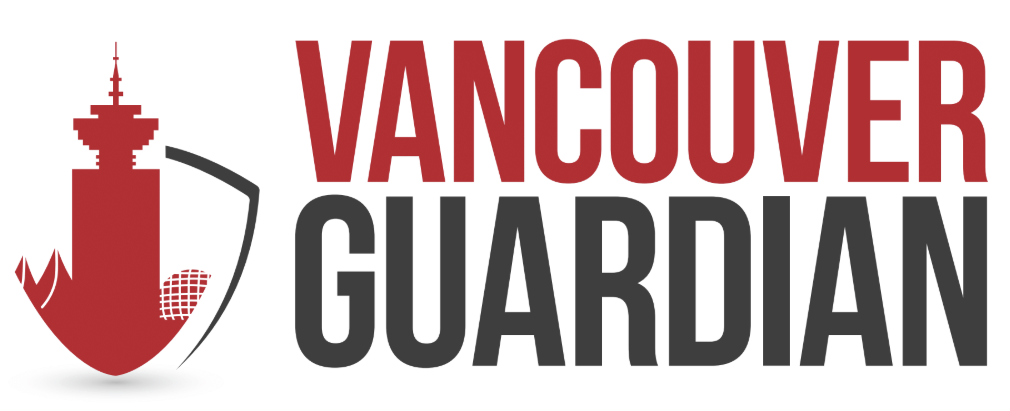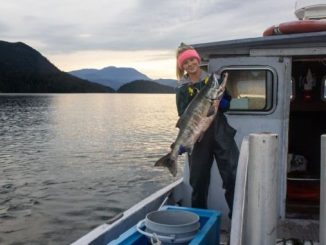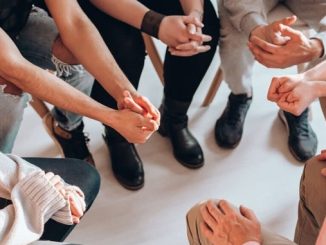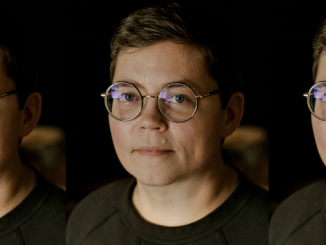We sat down with Oliver Thorne, Chief Executive Officer, for a closer look at The Veterans Transition Network, based right here in Vancouver, BC. This organization is all about helping our veterans make a successful shift from military to civilian life. From mental health support to career transition programs, they’re on a mission to ensure no veteran is left behind. Join us as we explore the impactful work and stories of resilience behind The Veterans Transition Network, making a real difference in the lives of those who served our nation.

Describe your charity/non-profit/volunteer work in a few sentences.
The Veterans Transition Network provides evidence-based, specialized group counselling programs for members and veterans of the Canadian Armed Forces and RCMP. We deliver our programs across Canada, in English and French, for Men and Women, always free of charge to those who attend.
What problem does it aim to solve?
The Veterans Transition Network delivers group counselling designed specifically for Veterans to overcome trauma, improve mental health and well-being, strengthen families, stabilize employment, and aid the transition from soldier to civilian.
Veterans come into our programs struggling with PTSD, anxiety and depression. They’re often experiencing significant difficulty adjusting to life outside the military. VTN’s goal is to build the trust relationship that allows Veterans to engage with counselling, provide them with meaningful support, and normalize seeking mental health services.
When did you start/join it?
The programs we deliver were first developed at the University of British Columbia in the late 1990s by a team of psychologists and a medical doctor. The program design was continually developed and refined over a decade of research and deliver at the university.
In 2012 the Veterans Transition Network was established as an independent charity with the goal of bringing these programs out of the University of British Columbia and expanding them across Canada, making them free and accessible to any Veteran who needed them.
I began working with them in the same year, overseeing the initial expansion of our programs into the Prairies, Central and Atlantic Canada.
What made you want to get involved?
During my undergraduate degree at UBC, my own interest in a military career introduced me to a young Army Veteran, Tim, who had just returned to university after a 6-month deployment in Afghanistan. Tim took the program to help him readjust to life at university after his deployment in Afghanistan.
The program had such a profound impact on him, that he changed his career trajectory, and became a counsellor and a co-founder of the VTN, alongside the program founders. Tim and I became friends, and I began volunteering with the program team.
What was the situation like when you started?
It was fun, meaningful and challenging all at the same time. The one constant was uncertainty. Uncertainty about whether we would get the organization off the ground, whether we would find Veterans to take our programs as we expanded into new provinces, and always uncertainty about whether we would raise enough money to keep the lights on for another month.
How has it changed since?
In 2012, our first year of operations, we had 3 staff working out of a single-room office. We delivered 3 programs in British Columbia, in English and for men only.
Last year, we delivered 40 programs in 8 provinces across Canada, serving Men and Women from all provinces, in English and French. Our fantastic team has grown to 12 staff members, over 25 psychologists and counsellors, and over 50 Veteran peer supporters from coast to coast. Our office now has two rooms!
To date, we’ve helped over 1800 Veterans across Canada develop new skills, process trauma and enhance their personal relationships, all with the goal of easing their transition from soldier to civilian. All of this work is possible because of our incredible team, and the generous supporters across Canada who fund our programs.
What more needs to be done?
There is still much we must do as Canadians to give our Veterans the mental health support and post-service success they deserve. We know from the research that there are still many Veterans struggling in isolation with the invisible scars of service:
39% of Veterans report difficulty adjusting to civilian life.
32% of Veterans indicate their partners had difficulty with their release, and 23% report their children had difficulty with their release.
Life After Service Survey 2019
Often, because of the longstanding stigma around help-seeking in the military community, Veterans only come forward to ask for help when their suffering is becoming intolerable or approaching crisis. We need to keep our programs available and readily accessible to serve Veterans when they ask for our help. If we don’t, we risk losing them entirely. We have to be ready.
We also want to complement our core mental health services with new program offerings, like couples’ of family programs, to enhance the gains and transition success that Veterans experience through our core programs.
How can our readers help?
Have conversations about mental health. Although the situation is slowly improving, stigma around mental health challenges and support is still prevalent in the military community, and our society at large. Have a conversation with your friends, your family, especially any Veterans in your life, about mental health. This societal shift will happen at the kitchen tables around our country, and you can be a part of this change.
Support the Veterans in your life. Veterans often struggle with feeling disconnected and isolated from the civilian world. Pick up the phone, take them for coffee. Let them know that you appreciate them, and their service to Canada.
Lastly, if you believe in our mission, and you have the capacity to give, please consider a donation to support our programs. It’s the generosity of donors around the country that ensures our programs stay accessible to any Veteran who wants them, regardless of geography, gender or language.
Do you have any events coming up?
We have programs happening all the time, across Canada, although they are private and confidential. Unfortunately, we do not often run public events, because of the sensitive nature of the counselling work we do.
Where can we follow you?
Please visit our website. You can see our program schedule, read Veteran stories, and sign up for our newsletter if you would like to follow our activities.
If you want to see an independent review of our charity, you can check here.
PAY IT FORWARD: What is an awesome local charity that you love?
Canadian Women for Women in Afghanistan! In 2021 VTN embarked on a special campaign to help evacuate Interpreters and Locally Employed Civilians who worked with the Canadian Armed Forces. One of the charities we consulted with regularly was CW4W, and we came to know them well. They are a great charity with a fantastic team and a meaningful mission.




